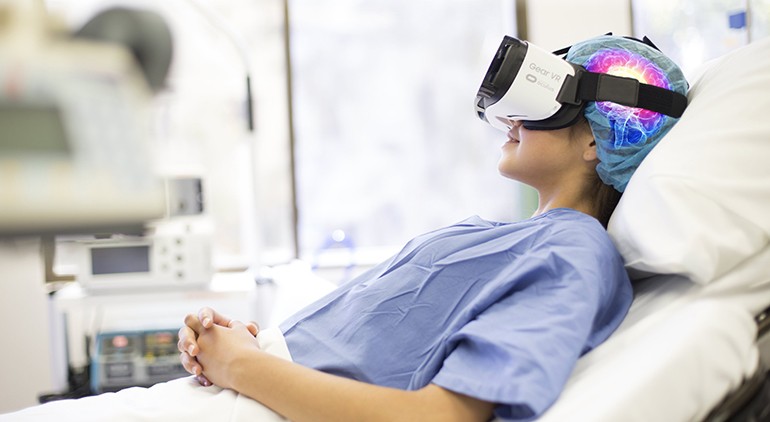07/05/2024
07/05/2024

NEW YORK, May 7: Virtual reality (VR) is rapidly emerging as a transformative tool in mental health treatment, offering innovative solutions to address the growing prevalence of mental illnesses in the United States. Recent research highlights VR's effectiveness in treating conditions such as PTSD, body-image disturbances, and stress-related disorders, heralding a new era in mental healthcare.
FireflyVR, a leading VR development company, is at the forefront of leveraging VR technology to enhance therapeutic outcomes. CEO Shel Mann emphasizes VR's potential to open the brain's window of neuroplasticity, facilitating relaxation and mindfulness practices crucial for fostering positive feelings and behaviors. By integrating biophysical signal recordings into immersive VR applications, FireflyVR aims to revolutionize therapeutic effectiveness by providing reliable measures for assessing users' emotions and anxiety levels.
Dr. Christopher Romig, Director of Innovation at mental health clinic Stella, utilizes FireflyVR's technology to alleviate patient anxiety before ketamine-infusion therapy, a treatment for conditions like depression, anxiety, and PTSD. The combination of ketamine therapy and VR-guided sessions helps calm patients, fostering neural connectivity during optimal brain-receptivity periods.
FireflyVR's platform, The Sanctuary, offers a clinically designed VR experience using cognitive-behavioral therapy to reduce anxiety before ketamine therapy sessions. Patients immerse themselves in a virtual world, learning techniques such as setting intentions and practicing breathwork to cultivate a peaceful mind, enhancing the efficacy of ketamine treatment.
VR's applications extend beyond anxiety treatment, with adaptations for addiction therapy and addressing eating disorders. Nicole Siegfried, Chief Clinical Officer at Lightfully Behavioral Health, utilizes VR cue exposure to reduce binge-eating habits and promote body acceptance among patients with eating disorders. VR's ability to immerse individuals in challenging scenarios provides a gateway for overcoming fears and challenges, ultimately aiding in their integration into normal life.
Despite its promising potential, VR integration in mental health care faces challenges such as therapist training and equipment costs. However, as research advances and awareness grows, VR technology holds immense promise in revolutionizing mental health treatment, offering hope to millions grappling with mental illness.


